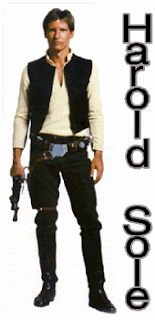 If you missed part 1, Getting to Know You: Interviewing Your Characters, you can find it here.
If you missed part 1, Getting to Know You: Interviewing Your Characters, you can find it here.Here are more snippets from articles I found online. I hope you find a question (or five or ten!) that help you get to know your characters better.
Character Worksheet (Tara Harper) What do you need to know about your characters in order to make them believable? … Anything you can think to ask your character could give you more insight about him and why he acts or speaks the way he does. … In many cases, you can invent these details on the spot while you write furiously through your scene. In other cases, you will need to know a great deal about the character before you write the scene, in order to make that background presence or few speaking lines significant.
Sample questions:
- Who have you loved? Who did you love best, and why? Ever felt guilt about love?
- Have you ever betrayed anyone? What did you do?
- Ever witnessed or experienced violence? What was your reaction to seeing or experiencing that violence?
- Ever committed a violent act? What was it, and why did you do it?
- Ever risked something important or made a sacrifice for someone else? Would you do it again?
Four Methods for Interviewing Your Characters (Laurie Schnebly Campbell)
Method #1: Twenty Questions
Sample questions:
6. If you could spend the day with someone you admire (living or dead or imaginary), who would you pick?
7. Do you think you've turned out the way your parents expected?
13. What would you like it to say on your tombstone?
Method #2: Basic Inventory
Sample questions:
Method #3: "Gloves-Off" Questions
- What attracts this character to the other?
- What repels this person about the other?
- What does character want from life?
- What could character lose here?
- What does character want to avoid?
- What will this person have to give up in order to be with the other?
What do you want? Jennifer Crusie says to give them some time to answer this, then ask: Okay, but what do you really want? Give them some time to answer this, then ask: That's fine, but what do you REALLY want? (Keep asking this until they reveal something that, on the surface, sounds pretty shameful—that's what they're hiding from themselves. And that's what makes them human...
Method #4: Freestyle Interview
This is really like having a conversation with somebody you'd like to get to know better. You can do it before starting the book, or anywhere in the middle—just keep in mind what stage of the book this person is at. (If they haven't yet met the love of their life, they can't really talk about the relationship!)
Get to Know Your Characters through an Interview
Sample questions:
- How do you feel about your family, now that you’re an adult?
- What parts of loving come easy for you? Hard?
- What really moves you, or touches you to the soul?
- What's the one thing you have always wanted to do but didn't/couldn't/wouldn't? What would happen if you did do it?
- What do you consider your special talent? What do you wish your special talent was?
Getting to Know You: Questions for your Viewpoint Character (Alicia Rasley)
Just read this over and answer whatever questions (don't have to do all) intrigue you.... in the VOICE (first person) of ONE of your POV characters. It might help to choose the main character you know the least.
First-person, remember. That will help you get a sense of the character's voice. …
Remember the rule:
WHAT YOU CONCEAL IS WHAT YOU REVEAL. That is, anything this character feels like she needs to conceal? Probably really important! And notice HOW she conceals it. Does she make light of it? Does she lie? Does she ignore it? Does she wish it away? Does she get belligerent and "none of your beeswax?" Don't say, "Well, if she's concealing it, how do I know?" You can't conceal without notice. That is, the very act of concealment should SHOW. The reader should be able to sense that this is a sensitive topic, or that the character isn't telling the whole truth, or that she's making light of something important.
How to Writer an Interview with a Book Character (Kara Page)
Sample questions:
- Write several questions that relate to the history of the character. …
- Write several questions about what happens during the course of the book. These will typically focus on the "hows" and "whys." …
- Write several questions about what the character will do after the book ends. …
- Ask the character to share a secret with you that is not revealed in the book. ...
Interviewing Characters: Follow the Energy (Dale Emery)
… I did what I do in many real-life interviews: Follow the energy. The idea is to:
1. Ask a question that invites the character to tell me something new.
2. Listen for emotional intensity in the answer. Sometimes the emotion is subtle, and other times it’s big and obvious.
3. Ask my next question based on that emotion.
Interviewing Your Character
Sample questions:
1. What is your earliest memory?
5. Last nightmare you remember having?
15. Do you pray?
16. Do you have any superstitions?
20. What was the last song you sang?
30. If you stay up late what do you do?
Interviewing Your Lead Character: 13 Questions to Ask Before You Begin Your Story (Brenda Nelson-Davis)
My critique partner, who comes from a military background, takes a different spin on the interview process. She imagines herself as airport security. She orders each of my characters to turn out their pockets and she runs each piece of luggage through high-tech scans. Then she and her virtual commandos escort “said character” to an interrogation room to discuss each found object. “Explain the purpose of this object,” she commands. “You’re carrying it because?” Her grilling unearths a wealth of information. (I’m certain she missed her calling.)
Wednesday Writing Challenge: Character Interview (Susan Pogorzelski) Let your characters guide you; listen to their story. After all, it’s theirs to tell. (Hints: Try to refrain from answering the questions as yourself. Instead, answer as your character would, be creative and use whatever first comes to mind.)
Sample questions:
- What is your evening routine?
- What’s in your refrigerator?
- What was your favorite cartoon as a child?
- Who would you call in an emergency?
- What’s on your bookshelf?
- What’s your favorite letter, word, phrase?
Writing Characters Using the Proust Questionnaire (Andy Shackcloth)
The Proust questionnaire totally ignores age, partner, colour of hair and instead asks leading questions of who are you, what are your values. I found it impossible not to don the characters head and fill out the questionnaire as if I were he/she. For some reason the very way he/she thinks pops into your head and then it becomes the character filling in the form.
Sample questions:
6. Who are your favourite characters in history?~~~
17. What do you most value in your friends?
19. What to your mind would be the greatest of misfortunes? 30. What historical figures do you most despise?
33. How would you like to die?
Do you have favorite questions you ask to discover more about your characters?






